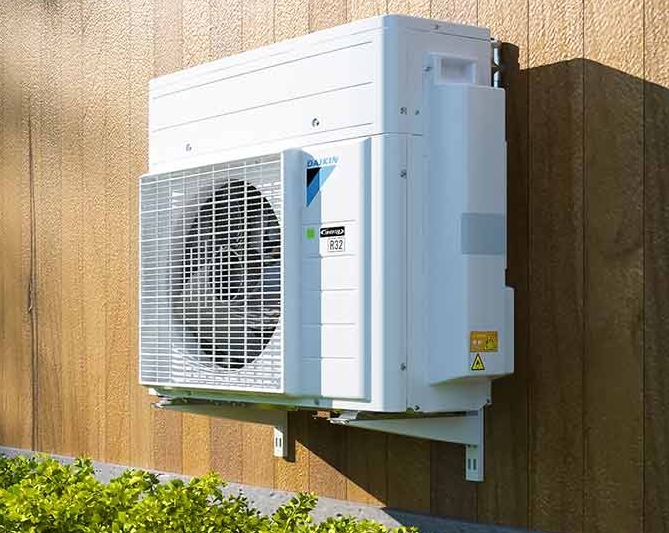Addressing the global climate crisis is rightly now gaining a a real sense of urgency. And while governments and businesses begin committing to the necessary structural changes, there are also things that individuals can do to play their part in the change to Net Zero. We would be interested to hear about your experiences in putting ideas for personal action into practice. Our first story on this subject comes from Robert Verrell, in Rushlake Green. He writes:
Given the recent publicity over heat pumps, both from central government and the media, I thought I would share my experience with you having installed an air source heat pump myself.
I installed my system in December 2013 and so I have had 7 years ownership. Obviously I am only able to confer what the requirements and issues were back then and clearly those requirements will have changed and been updated for today’s installations.
I live in a Grade II Listed detached house and back then I had to replace my very environmentally unfriendly oil fired boiler as it was past its sell by date. I considered a straight forward replacement and also explored the heat pump option. At the time, HM government were offering incentives for heat pump installation, as whilst the technology was established in Europe, it was a relatively new thing here.
I went to a certified installation company (in Eastbourne) who came round and surveyed my property. The choice was air source or ground source. The former is cheaper and easier to instal and the latter is more expensive as it requires pipework to be laid below ground within the garden. The certified installation company will advise and set out the pros and cons.
Having decided on an air source heat pump, I went for a high output system. I have a Daikin condenser sited externally to the side of the house and heat exchanger sited in my utility room. The heat exchanger was smaller than my old oil fired boiler. I retained my existing wet central heating system via wall mounted panel radiators.
Things to consider:
- I had to obtain Listed Building consent from Wealden.
- I had to replace my domestic hot water cylinder to be compatible with the heat exchanger. It was also fitted with an immersion heater.
- The installer needs to be registered, certified and approved, as grants only available on that basis.
- Electrical completion certificate required.
- EPC required.
- Any grants available are paid over time (not lump sum) and so you will need to finance the installation in the medium term. I received back approximately 75% of the installation cost over a 7 year period.
- My grant was paid to me as an individual whilst resident at my property and would stop if I sold my house.
- I have to complete annual declarations (very simple) to receive the grant, which is paid quarterly.
In the 7 years that I have operated the system, it has performed seamlessly. I have it serviced annually (no more expensive than my old oil fired boiler) and the domestic hot water is piping hot. On winter days when the outside temperature remains below freezing during daylight hours, the system does seem to have to work hard.
I would have no hesitation recommending this system and hopefully over time installation costs will reduce in real terms due to economies of scale.
ROBERT VERRELL
October 2021

Recent Comments